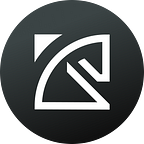Beating the EEG experts
How two medical students from Ghana came to outperform dozens of epileptology experts at a key clinical task, and what it means for the future of medicine
When friends Andrews Gyabaah and Jeffery Danquah got a notification that they’d won $25 in the EEG contest on the DiagnosUs app, it was nothing new for them. Outside of their studies and rotations in medical school at the University of Ghana, the two are often competing in medical image analysis contests on their iPhones.
On the other side of the world, the research team behind the contest was marveling at the results.
Dr. Fabio Nascimento and Dr. Brandon Westover, a pair of researchers from Harvard MGH, were studying novel ways for doctors in training to learn to recognize important electroencephalogram (EEG) patterns. To collect expert opinions on a large dataset, they launched the contest publicly at the Critical Care EEG Monitoring Research Consortium (CCEMRC) which was held on June 6, 2021.
About fifty epileptologists with 10+ years of experience attempted the contest, and the conference organizers had printed a shirt to award to the conference’s top performer–who they assumed would win the contest overall.
But when the results came in, the highest ranked participant from the conference placed only 9th in the contest. Andrews and Jeffrey, two medical students from Ghana, had beaten the experts.
DiagnosUs, the app that hosted this contest, lets anyone compete to analyze medical images most accurately. Contests are only open for a short period of time, and everyone who plays the contest is given a medical image analysis task. Players receive a score for their performance, and at the end of each contest, prizes are paid out to the players at the top of the leaderboard.
Most players are medical students from all over the world. They’re competing to analyze datasets provided by medical institutions, medical device companies, startups, research teams — any team building medical artificial intelligence.
Andrews heard about the app from medical school colleagues who were winning prize money. “I started by doing it for the money,” he told us, “but I realized it actually started helping me a lot. There were times in the clinic where I realized that I was doing better than others because of what I learned on the DiagnosUs app.”
When the EEG contests started, Andrews wasn’t performing very well. “I took it upon myself to learn EEGs,” he said, “so I Googled and watched YouTube videos on how to analyze EEGs.” Once he’d figured out which waves corresponded to different brain hemispheres, he unlocked higher performance.
The surprising results will further fuel study of gamified applications for medical education. “We wanted to test this contest as an objective way to measure experts’ skill relative to a gold standard consensus,” said Dr. Nascimento, “we are definitely planning to pursue this further.”
These researchers may be onto something, says Andrews. “When I started medical school I knew that neuroscience was one of the hardest specialties, and I always want to challenge myself. That is why when I saw that I was doing poorly at the EEG tasks I made up my mind to develop my talent and beat everyone on the leaderboard.”
The future of medical technology will not be shaped just by experts. Anyone with the motivation can find tools to improve their medical skills, and contribute to breakthroughs.
